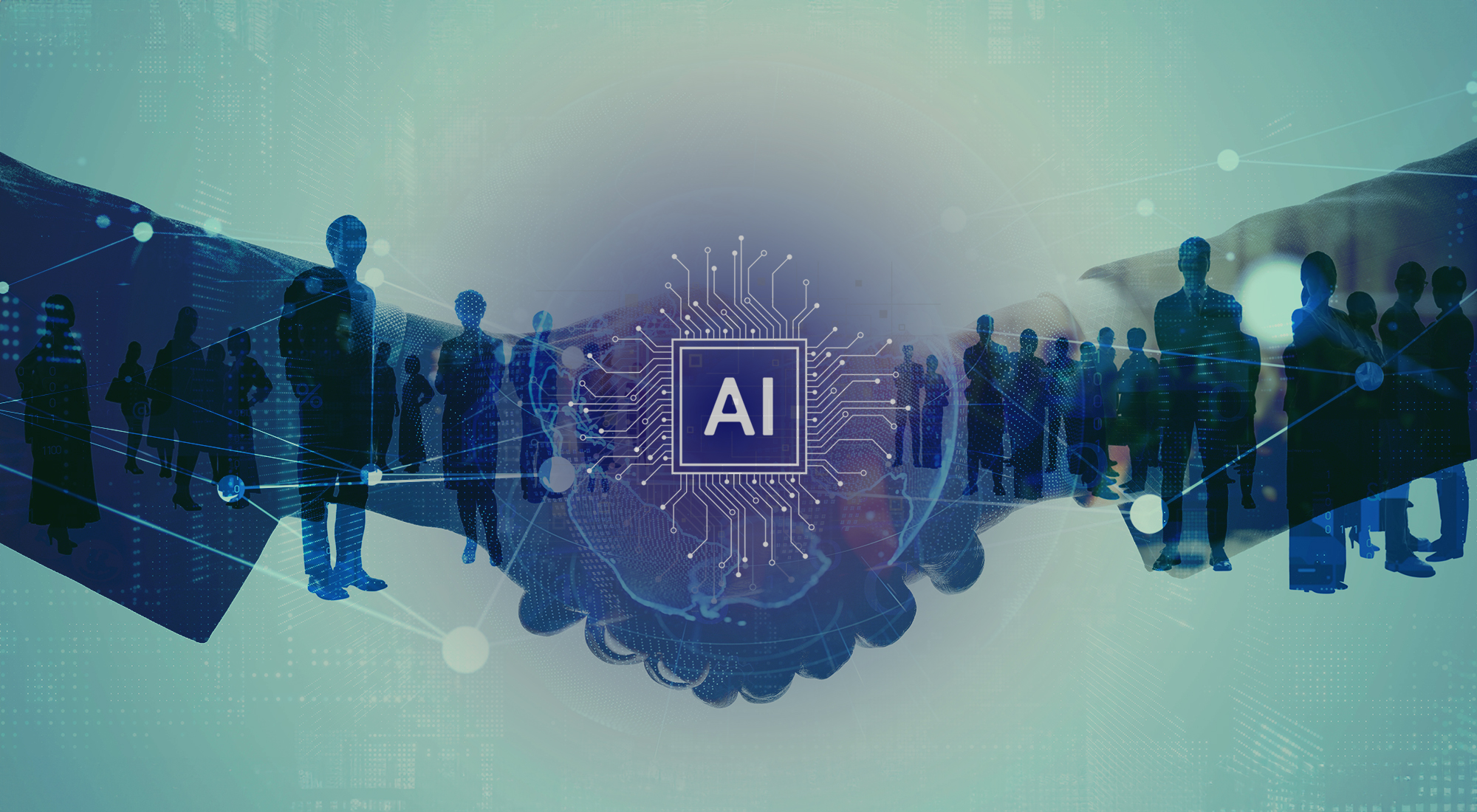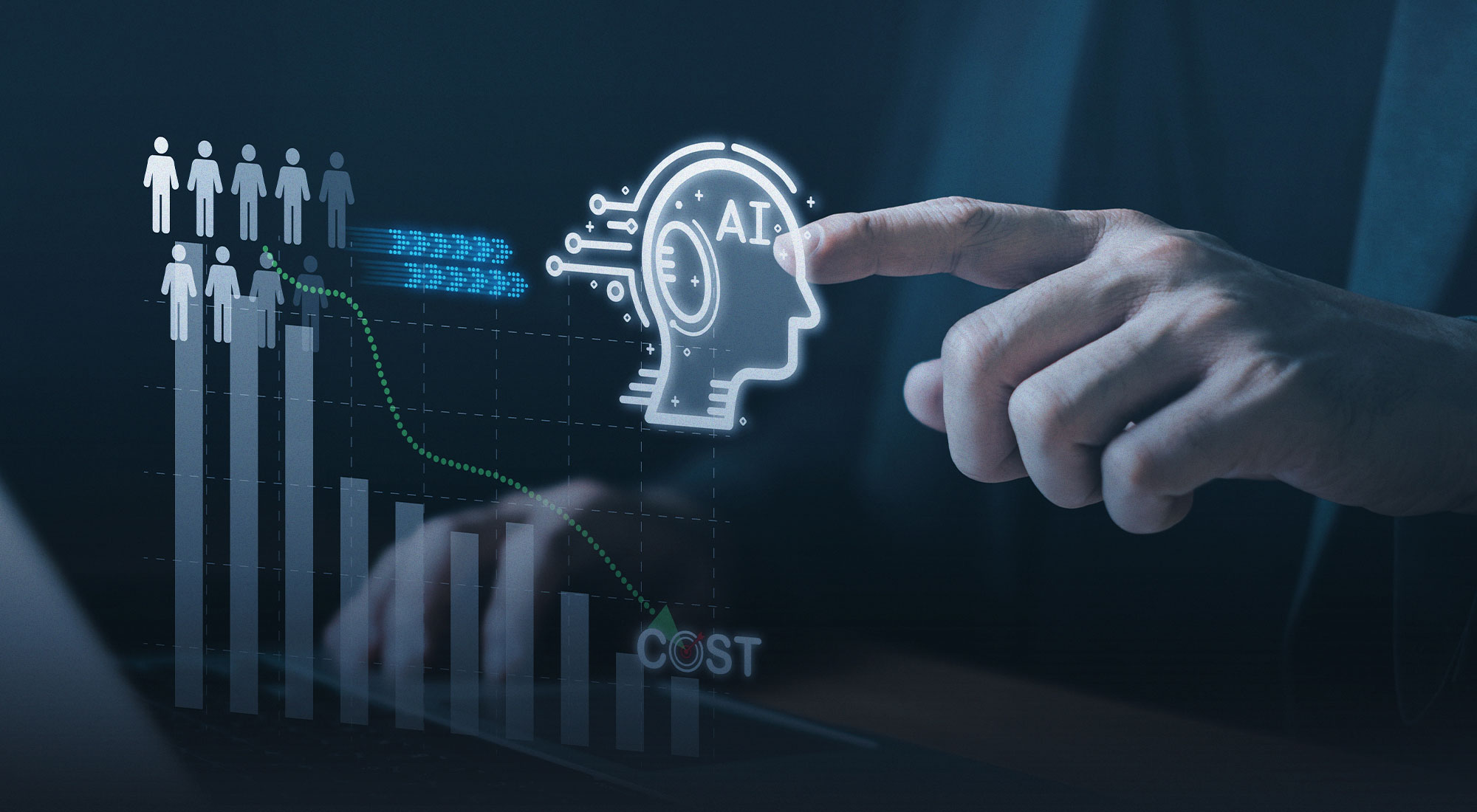The emergence of Artificial Intelligence (AI) marks the beginning of a transformative era in diplomacy, fundamentally reshaping how nations engage, negotiate, and communicate on the global stage. In an increasingly interconnected world, where the complexity of international relations demands more sophisticated approaches, AI emerges as a pivotal tool to enhance data analysis and predictive modeling, therefore enabling diplomats to make informed decisions based on vast amounts of data. Through the use of advanced algorithms and machine learning (ML), diplomats can analyze trends, predict potential conflicts, and adjust their strategies to achieve better outcomes. This data-driven approach enhances the effectiveness of international negotiations. However, the integration of AI in diplomacy is not without significant ethical and security challenges. Concerns regarding accountability, transparency, and the potential for bias in AI-driven processes necessitate a critical examination of how these technologies are deployed in sensitive diplomatic contexts.
Furthermore, as AI increasingly influences public diplomacy, it offers new avenues for engagement and communication, fostering deeper connections between nations and their citizens. Yet, this also raises questions about the risks associated with misinformation, manipulation, and the erosion of traditional diplomatic practices. This article aims to explore these multifaceted dimensions of AI’s role in diplomacy, highlighting both the opportunities it presents and the imperative for robust ethical frameworks and global governance to navigate the complexities of AI-enhanced international relations. As we stand on the precipice of this technological revolution, it is paramount to address how AI will not only alter the landscape of diplomacy but also shape the future of global interactions in a manner that is equitable, secure, and sustainable.
Role of AI in Enhancing Data Analysis and Predictive Modeling in Diplomacy: AI in Diplomatic Decision-Making
How is AI used to improve data analysis in diplomatic contexts?
AI systems have demonstrated a remarkable capability to process and analyze vast amounts of data at speeds unattainable by human analysts, providing a crucial strategic advantage in diplomatic contexts.[1] This rapid analysis capability allows AI to synthesize information relevant to diplomatic negotiations, enabling diplomats to make more informed decisions and develop robust strategies for complex international issues.[2] AI plays a transformative role in enhancing data analysis within diplomatic contexts by predicting the behavior of states in forums such as the UN General Assembly, thereby offering deeper insights into diplomatic dynamics and improving negotiation strategies.
For instance, AI’s capacity to analyze vast amounts of historical and real-time data can generate multiple scenarios, which is invaluable for strategy formation. A clear example would be in the German-Austrian customs union negotiations of 1930-1931, where AI could have modeled potential responses from countries like France and Czechoslovakia, enabling diplomats to better anticipate opposition and adjust their approaches accordingly.[3] While AI cannot replace the nuanced judgment of experienced diplomats, its ability to process large data sets, identify patterns, and suggest strategic insights makes it an indispensable tool for improving data-driven diplomatic decision-making. As a result, diplomatic institutions should explore the integration of AI and advanced data analysis to refine diplomatic processes and outcomes.[4]
What are the benefits of predictive modeling for international relations?
Incorporating predictive modeling through AI into international relations offers several significant benefits that enhance diplomatic efforts and strategic decision-making. One of the primary advantages is the ability to process and analyze vast datasets efficiently, which can provide diplomats with actionable insights in real time. This capability allows for more informed decision-making, particularly in the context of rapidly changing geopolitical landscapes.[5] For instance, AI-driven models can forecast potential diplomatic outcomes and identify emerging threats or opportunities, thereby enabling pre-emptive strategies that align with national security objectives.[6]
Additionally, the integration of AI into international relations encourages the development of “new technology diplomacy”, where technological advancements are harnessed to foster cooperation and mitigate conflicts.[7] This proactive approach not only enhances traditional diplomatic practices but also opens avenues for more transparent and equitable engagements on the global stage.[8] Therefore, it is imperative for policymakers to embrace AI-enhanced predictive modeling, ensuring that these technologies are implemented responsibly to maximize their benefits while minimizing risks.
What specific AI tools and technologies are being employed for these purposes?
In the realm of military applications, AI tools and technologies are revolutionizing various operational domains by enhancing data collection, analysis, and decision-making processes. Small robotic sensors are being deployed in combat operations to gather critical information, which is subsequently processed using AI-enabled sensors and computing technologies to derive actionable insights.[9] In the U.S., the Defense Department’s Project Maven exemplifies the use of deep neural networks for image classification within drone video feeds, significantly improving the accuracy and efficiency of intelligence gathering.
Moreover, AI systems are being designed to integrate data from multiple intelligence sources, thereby augmenting situational awareness and facilitating more informed decision-making on the battlefield.[10] The U.S. Army’s initiative to deploy Robotic Combat Vehicles (RCVs) leverages AI for autonomous functionalities such as navigation and surveillance, reflecting a broader trend toward automating complex military tasks.[11] These advancements underscore the transformative potential of AI in enhancing operational capabilities and strategic decision-making in military contexts, necessitating continued investment and innovation to maintain strategic superiority.
Ethical and Security Challenges of AI Integration in Diplomatic Processes
What are the primary ethical concerns regarding AI in diplomacy?
One of the primary ethical concerns regarding AI in diplomacy revolves around the issue of stratified citizenship for AI entities. This concept raises significant questions about the extent to which AI should be integrated into societal roles traditionally reserved for human beings. For instance, the notion that robots may obtain a form of citizenship but with limited rights and privileges, such as being unable to vote or hold public office, presents a complex ethical landscape.[12] The situation in Saudi Arabia, where a robot was granted citizenship, underscores these challenges and amplifies the debate about the role and status of AI in human societies.[13]
Additionally, the European Union’s (EU) push to include data freedom as part of its core economic freedoms further highlights the need for ethical considerations in AI diplomacy. This call for data freedom suggests a recognition of the significant impact that AI-driven data usage can have on privacy, security, and broader societal norms. A critical component in addressing these concerns is the General Data Protection Regulation (GDPR), which sets strict rules on data privacy and protection across the EU. The GDPR enforces transparency in AI-driven data collection, granting individuals greater control over their personal information and setting limits on automated decision-making, particularly in sensitive areas like profiling.[14] Addressing these ethical concerns requires a multifaceted approach, including the enhancement of data privacy technologies, the promotion of privacy awareness, and the implementation of measures to combat discrimination, such as the taxation of data transfer.[15] By taking these actions, policymakers can mitigate the ethical risks associated with the integration of AI in diplomatic contexts, ensuring a balanced and just application of these advanced technologies.
How do security risks manifest with the integration of AI in international relations?
However, the integration of AI in international relations introduces various security risks that are multifaceted and interconnected. One primary concern is the potential misuse of AI technologies in military applications, which could disrupt the strategic balance and provoke conflicts. For instance, autonomous weapons systems powered by AI lack the ability to discern right from wrong, raising ethical and moral questions about their deployment in conflict zones.[16] This incapacity for moral judgment could lead to unintended escalations in international tensions, as these systems operate on predefined algorithms without the nuanced understanding that human decision-makers possess.
Moreover, AI’s rapid growth has manifested in diverse forms, including its integration into decision-making processes, which, while beneficial, also poses risks if these systems are not aligned with human values and ethics.[17] The proliferation of AI technologies could also impact areas such as trade and diplomacy, influencing foreign direct investments (FDI) and reshaping the future landscape of international relations. It is crucial for AI development to incorporate ethical frameworks to mitigate these risks and ensure that AI systems contribute positively to global stability.[18] Therefore, it is imperative for international bodies and nation-states to collaborate on establishing comprehensive AI governance policies, emphasizing the need for ethical considerations and strategic foresight in AI integration within the realm of international relations.
What measures can be taken to ensure accountability and transparency in AI-driven diplomacy?
Ensuring accountability and transparency in AI-driven diplomacy necessitates a multifaceted approach that encompasses both governance frameworks and educational initiatives. One pivotal measure is the negotiation of appropriate international governance frameworks that reconcile technological innovations related to AI with existing laws and ethical standards.[19] This is crucial because AI technologies evolve rapidly, and without a robust governance structure, there’s a risk of ethical and legal oversights that could undermine diplomatic integrity. Alongside governance, educating diplomats and relevant government officials about the opportunities and potential impacts of AI-powered technologies is essential.[20] This education serves as a risk-reduction measure, equipping officials with the knowledge to make informed decisions and mitigate potential negative impacts of AI.
Multi-national initiatives such as the Global Partnership on Artificial Intelligence (GPAI) play a significant role in fostering connections between government officials and stakeholders, helping to address the governance needs in AI.[21] These initiatives not only enhance the skills of the involved parties but also create a collaborative environment for addressing complex issues such as accountability and transparency in AI-driven diplomacy. By combining international governance frameworks, educational efforts, and multi-national collaborations, the diplomatic community can better manage the challenges and harness the benefits of AI technologies in a transparent and accountable manner.
Impact of AI on International Negotiations and Public Diplomacy
In what ways is AI transforming the landscape of international negotiations?
Artificial Intelligence (AI) is fundamentally transforming the landscape of international negotiations by providing a myriad of advanced tools and methodologies that enhance decision-making and strategy development. One crucial aspect is the implementation of AI-powered computerized decision-making support systems, which significantly aid practitioners and learners in comprehending the complexities of foreign policy decision-making processes and strategies during diplomatic negotiations.[22] These systems utilize the Expert System framework, incorporating Forward Chaining strategies to develop AI/IR systems that can simulate and predict negotiation outcomes based on various inputs and scenarios. Additionally, the integration of AI in data analysis has revolutionized the ability to understand and navigate complex negotiations by processing vast amounts of data more efficiently than traditional methods.[23]
AI also plays a pivotal role in conflict resolution, offering tools that help address and mitigate disputes, thereby facilitating smoother negotiation processes. For instance, AI-driven predictive analytics enhance the capability of negotiators to forecast potential outcomes of different strategies, enabling more informed and strategic decision-making.[24] Furthermore, AI’s application in language translation has broken down communication barriers, allowing for more seamless interactions between parties from diverse linguistic backgrounds.[25] AI’s impact extends to cybersecurity advancements, which ensure the protection of sensitive negotiation data, creating a more secure environment for discussions.[26] This protection is crucial in maintaining the integrity and confidentiality of the negotiation process.
As AI continues to evolve, its influence on traditional diplomatic practices is becoming increasingly evident, reshaping how countries approach negotiations and fostering a more collaborative international landscape.[27] Emphasizing the importance of understanding and harnessing AI’s potential, diplomats can better adapt to the changes and leverage these technologies to address global challenges more effectively.[28] The integration of AI in international negotiations not only enhances efficiency and effectiveness but also necessitates a proactive approach to developing and adopting these technologies to stay ahead in the ever-evolving diplomatic arena.
How does AI enhance public engagement and communication in diplomacy?
In addition to analytic capabilities, AI significantly enhances public engagement and communication in diplomacy by facilitating more effective public diplomacy and crisis communication strategies. By leveraging AI, diplomats can utilize advanced digital tools and online platforms to rally public support for or against diplomatic accords more efficiently.[29] This enhanced ability to engage with the public in real time enables governments to navigate complex international relations landscapes more adeptly. Moreover, AI-driven platforms like social media have emerged as powerful instruments for public diplomacy, allowing for immediate and broad dissemination of information, which is crucial during diplomatic crises.[30]
The integration of AI in these platforms not only improves the speed and reach of communication but also allows for more personalized and targeted engagement with diverse audiences, thereby increasing the overall effectiveness of diplomatic efforts.[31] To maximize these benefits, it is imperative that diplomatic staff are well-informed about the potential implications of AI technologies, ensuring their responsible and strategic use in international relations.[32] This holistic approach underscores the importance of AI in modern diplomacy, highlighting the need for continuous innovation and adaptation in diplomatic practices to fully leverage AI’s transformative potential.
What are the potential risks and opportunities associated with AI’s role in public diplomacy?
While the previous discussion highlighted the predictive capabilities of AI in diplomatic contexts, it is essential to delve deeper into the nuanced risks and opportunities that AI’s integration into public diplomacy presents. One significant opportunity lies in AI’s ability to automate and streamline consular services, providing citizens with accessible and practical information and easing the visa process. Such automation can enhance efficiency and allow diplomats to focus on more strategic tasks.[33] However, an over-reliance on AI tools may lead to significant drawbacks. AI systems might overlook crucial but less-publicized figures who play pivotal roles in diplomatic relations, thereby missing strategic engagement opportunities.[34]
Additionally, the inherent limitations of AI in capturing the full range of assets available to diplomats, such as the valuable connections within diasporic communities, further underscore the need for a cautious approach. Moreover, the use of generative AI in public diplomacy introduces the risk of spreading inaccurate or misleading information, which could erode public trust in diplomatic institutions.[35] This risk is exacerbated by AI’s capability to propagate fake news and automate commenting via bots, making it a double-edged sword in the realm of public diplomacy.[36] Therefore, while AI offers significant potential for innovation and efficiency, it is imperative for diplomats to employ it judiciously, ensuring that human judgment and the complexity of diplomatic contexts are not overshadowed by technological advancements.
The Road Ahead for AI
The findings of this research underscore the transformative potential of AI in diplomacy, highlighting its role as a catalyst for enhanced decision-making and strategic formulation in international relations. By integrating predictive modeling and advanced data analysis, diplomats can now synthesize complex information at unprecedented speeds, allowing for a more nuanced understanding of geopolitical dynamics. This capability is particularly pertinent in rapidly evolving contexts where timely and informed decisions are crucial.
However, while AI serves as an invaluable tool, it is essential to recognize its limitations; the nuanced judgment and interpersonal skills of experienced diplomats cannot be replicated by machines. Furthermore, the reliance on AI systems poses risks, including the potential to overlook influential but less visible actors in diplomatic negotiations and the danger of disseminating misinformation through generative AI. Such challenges highlight the need for a balanced approach, where human insight complements technological advancements. Additionally, the ethical implications concerning AI’s role in stratified citizenship and privacy must be addressed to ensure equitable and responsible usage.
Future research should explore the integration of AI within diverse diplomatic frameworks and the implications of its application across various cultural contexts, as well as investigate the development of robust guidelines for the ethical use of AI in diplomacy. This will not only enhance the efficacy of diplomatic processes but also safeguard against the unintended consequences of technological integration. Ultimately, fostering a collaborative relationship between human diplomats and AI technologies will be essential for navigating the complexities of modern global relations, ensuring that the benefits of AI are harnessed while maintaining the integrity and trustworthiness of diplomatic institutions.
[1] Volker Stanzel, “Diplomacy and Artificial Intelligence: Reflections on Practical Assistance for Diplomatic Negotiations,” Academia.edu., 2022, https://www.academia.edu/75681789/Diplomacy_and_Artificial_Intelligence_Reflections_on_Practical_Assistance_for_Diplomatic_Negotiations.
[2] Ibid.
[3] Ibid.
[4] Ibid.
[5] Ryan David Kiggins, “Big Data, Artificial Intelligence, and Autonomous Policy Decision-Making: A Crisis in International Relations Theory?,” In: Ryan Kiggins (eds) The Political Economy of Robots (2018), link.springer.com/chapter/10.1007/978-3-319-51466-6_10.
[6] Nazli Choucri, “Forecasting in international relations: problems and prospects,” International Interactions 1, no. 2 (1974): pp. 63-86, www.tandfonline.com/doi/abs/10.1080/03050627408434390.
[7] Claudio Feijóo, Youngsun Kwon, Johannes M. Bauer, Erik Bohlin, Bronwyn Howell, Rekha Jain, Petrus Potgieter Khuong Vu, Jason Whalley, and Jun Xia, “Harnessing Artificial Intelligence (AI) to Increase Wellbeing for All: the Case for a New Technology Diplomacy,” Telecommunication Policy 44, no. 6 (July 2020), www.sciencedirect.com/science/article/pii/S030859612030080X.
[8] Damian Tuset Varela, “Diplomacy in the Age of AI: Challenges and Opportunities,” Journal of Artificial Intelligence General Science (JAIGS) 2, no. 1 (2024): ojs.boulibrary.com/index.php/JAIGS/article/view/101.
[9] Michael C. Horowitz, Gregory C. Allen, Edoardo Saravalle, Anthony Cho, Kara Frederick, and Paul Scharre, Artificial Intelligence and International Security, CNAS., July 2018, csdsafrica.org.
[10] Ibid.
[11] Kelley M. Sayler, “Artificial Intelligence and National Security,” Congressional Research Service, 2019, www.everycrsreport.com.
[12] Julia M. Puaschunder, “Artificial Diplomacy: A Guide for Public Officials to Conduct Artificial Intelligence,” Journal of Applied Research in the Digital Economy 1 (2019): pp. 39-54, papers.ssrn.com/sol3/papers.cfm?abstract_id=3376302.
[13] Ibid.
[14] Ben Wolford, “What Is GDPR, the EU’s New Data Protection Law?” GDPR.eu, 2024, https://gdpr.eu/what-is-gdpr/.
[15] Ibid.
[16] Elena Tilovska-Kechedji, Milica Kolakovic Bojovic, and Dragana Cvorovic, “Artificial Intelligence Influencing Foreign Policy and Security,” HeinOnline, 2018, heinonline.org.
[17] Evgeny Pashentsev, The malicious use of artificial intelligence through agenda setting: Challenges to political stability, books.google.com.
[18] Bhaso Ndzendze and Tshilidzi Marwala, Artificial Intelligence and International Relations Theories (Palgrave Macmillan, 2023), link.springer.com/content/pdf/10.1007/978-981-19-4877-0.pdf.
[19] Neeti Pokhriyal and Till Koebe, “AI-assisted diplomatic decision-making during crises—Challenges and opportunities,” Frontiers in Big Data, May 2023, www.frontiersin.org/articles/10.3389/fdata.2023.1183313/full.
[20] Ibid.
[21] Ibid.
[22] Ratu Ayu Asih Kusuma Putri, Tangguh Chairil, Sukmawani Bela Pertiwi, and Aninda Rahmasari Tirtawinata, “Designing Artificial Intelligence/International Relations (AI/IR) Platform: Foreign Policy Decision-Making Simulation in ASEAN Negotiation,” 2020 International Conference on ICT for Smart Society (ICISS), 2020, ieeexplore.ieee.org/abstract/document/9307582/.
[23] Christina Meleouni and Iris Panagiota Efthymiou, “Artificial Intelligence and its Impact in International Relations,”Journal of Politics and Ethics in New Technologies and AI 2, no. 1 (2023), ejournals.epublishing.ekt.gr.
[24] Ibid.
[25] Ibid.
[26] Ibid.
[27] Varela, “Diplomacy in the Age of AI: Challenges and Opportunities.”
[28] Ibid.
[29] Corneliu Bjola, Jennifer Cassidy, and Ilan Manor, “Public Diplomacy in the Digital Age,” The Hague Journal of Diplomacy 14 (2019), brill.com/view/journals/hjd/14/1-2/article-p83_7.xml.
[30] Carola Frey, “ Digital Diplomacy: The Impact of Technology on Modern Diplomacy and Foreign Policy. Current Realities and Future Prospects,” Romanian Journal of European Affairs 24, no. 1 (June 2024), rjea.ier.gov.ro.
[31] Corneliu Bjola and Ilan Manor, “The rise of hybrid diplomacy: From digital adaptation to digital adoption,” International Affairs 98, no. 2 (March 2022): pp. 471-491, academic.oup.com/ia/article-abstract/98/2/471/6540781.
[32] Tamari Sabanadze, Digital Public Diplomacy at the Portuguese Foreign Affairs: Transforming the Nature of Digital Public Diplomacy-Creating an AI-Powered Tool for Event Evaluation, ProQuest, 2022, search.proquest.com
[33] Luigi Di Martino and Heather Ford, “Navigating uncertainty: public diplomacy vs. AI,” Place Branding and Public Diplomacy (2024), link.springer.com/article/10.1057/s41254-024-00330-z.
[34] Ibid.
[35] Ibid.
[36] Ibid.







